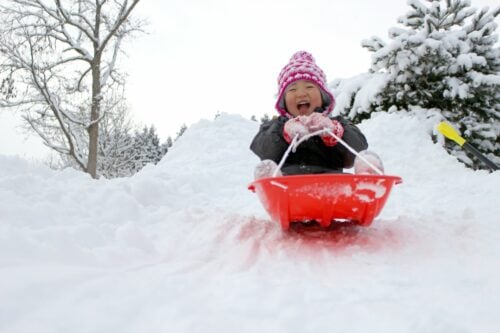Share this link via
Or copy link
Below are navigation links that will take you to the main text and navigation menus.
26,551 first names, 70,620 last names, 333,585 kanji variations.
one of the best Japanese name search tools for your baby!

When it comes to Japanese names, one of the most charming traditions is selecting a name that reflects the season in which a child is born. Spring (春, haru) is particularly beloved, thanks to its fresh blossoms, gentle winds, and a sense of new beginnings. Many parents draw on spring motifs—like flowers, warmth, and renewal—to craft a name that encapsulates hope and vitality for their child’s future.
In this article, we’ll dive deep into:
Whether you’re curious about Japanese culture, looking for a baby name with a seasonal twist, or simply appreciate how language and nature intertwine, read on to discover more about Japanese spring names!
Contents
Japan’s four seasons—spring, summer, autumn, and winter—are celebrated with extraordinary enthusiasm. Traditional festivals, foods, and cultural events mark each transition. From the ancient times, agriculture shaped much of the country’s social structure, leading people to pay close attention to weather patterns, planting schedules, and natural changes throughout the year.
Fun Fact: If you browse traditional Japanese poetry, such as haiku or waka, you’ll notice countless references to spring elements—cherry blossoms (桜), new greenery, and gentle breezes. These works underscore how deeply seasons are woven into Japanese identity.
Springtime in Japan is uniquely significant:
As a result, spring-inspired names are popular for symbolizing hope, warmth, and a fresh start—perfect messages to accompany the arrival of a new baby.

Cherry Blossom Viewing (Hanami)
Historically, Japan followed a lunar calendar that defined spring from Risshun (立春)—around the 3rd or 4th of February—to Rikka (立夏)—early May. Today, most people still loosely refer to early February through April as spring. By late March or early April, the entire country eagerly tracks the “cherry blossom front,” a forecast mapping when sakura will bloom from southern Kyushu up to northern Hokkaido.
Springtime evokes:
All these emotions and events influence how Japanese parents think about names that capture the essence of spring.
A sense of crisp air, newly unfurled leaves, and gentle breezes often appear in the kanji for spring names. Words like 爽 (sou) or 新 (shin, “new”) can be incorporated to highlight freshness.
Temperatures rise in spring, so kanji like 暖 (dan / atata(kai)) or imagery of the sun (日, hi / nichi) might be used in children’s names to convey warmth, brightness, and positivity.
Flowers such as 桜 (sakura), 菫 (sumire, “violet”), and 椿 (tsubaki, “camellia”) are classics for spring names. They embody charm, elegance, and the fleeting beauty of youth.
Because of the cultural significance of new beginnings, some kanji that mean “beginning” or “future” often appear—e.g., 希 (ki, “hope”) or 始 (hajime, “begin”)—though these aren’t always strictly spring references, they align well with the season’s themes.
The most direct way to reference spring is through the kanji 春 (haru) itself. It conveys youthfulness, warmth, growth, and the sense of “springtime.”
Boy Names with 春
Girl Names with 春
For more details, see the original list in Japanese First Names Meaning ‘spring’.
When spring arrives, everything feels fresh—the air, the scenery, people’s moods. The kanji 爽 (sou / saya / soyo / aoi) embodies a crisp, refreshing atmosphere. It often appears in names meant to evoke the image of a bright spring breeze or a clear, invigorating morning.
Boy Names with 爽
Girl Names with 爽
As the weather transitions from chilly winter to mild spring, warm winds from the south herald a new chapter. Names that feature warmth (暖) or wind (風) are common:
Spring is the season of blossoms—cherry, peach, plum, and more. Parents frequently choose kanji that evoke the visual splendor and delicate charm of flowers.
One of the purest ways to evoke spring is by using the kanji for the flowers themselves:
While traditional kanji like 春 (haru), 桜 (sakura), and 華 (hana) remain popular, younger parents may choose:
Pop Culture and Globalization Social media, anime, and global tastes inspire some parents to experiment with:
Despite these shifts, the core idea of honoring nature and seasons remains deeply rooted in Japanese naming practices.

Names like Haruka ( 春香) can appear as Haruka, HaruKa, or even Haaruka in English-based contexts. There’s no single “right” Roman spelling; it’s a matter of preference.
In Japan, it’s more common to say Haru-san or Haruka-san rather than just “Haruka,” especially if you are not close friends or family.
Spring in Japan is more than just a season—it’s a symbol of renewal, hope, and fleeting beauty. Whether you’re fascinated by how Japanese culture ties personal identity to nature, or you’re seeking naming inspiration for a child, the possibilities are as endless as the petals on a blooming cherry tree.
From kanji that literally spell out “spring” (春) to more indirect references to breezes, flowers, or warmth, each name carries a story that connects the child to the vibrant energy of the season. If you’d like to see more examples or continue exploring seasonal names, visit Japanese First Names Meaning ‘spring’ and be sure to check the next article in the series, Names Associated With Summer, to learn how Japanese culture celebrates the warmer months ahead. Happy springtime naming! May the freshness and optimism of the season bring inspiration to your own journey—whether that’s discovering a new Japanese name, deepening your cultural knowledge, or simply appreciating nature’s renewal in your everyday life.


Following our previous article on summer-themed Japanese names, we now turn to autumn—a season many Japanese consider the most artistic and reflective time of year. In Japan, nature’s colors transform in breathtaking ways, while cultural events celebrate both the harvest and creative pursuits. As with the other seasons, these autumnal qualities inspire parents to choose names that capture the essence of fall.


Sort by Most Kanji Variations
This is the order of names with many variations of kanji.
Basically, names with more variations are more common and familiar to the Japanese.
Sort by Most Viewed
The names are sorted by the number of times they have been viewed on this site. This ranking is based on the behavior of users around the world, including Japan, so it does not mean that the names are commonly viewed by Japanese people only.
Please note that just because a name has been viewed more times does not mean it is a famous name in Japan.
What is Hiragana?
Hiragana is a syllabary used in written Japanese, which originated from the cursive style of Kanji.
What is Katakana?
Katakana is also a Japanese syllabary. Basically, the characters don't have any meaning by themselves, they only represent the sounds.
Japanese try to express the words came from foreign languages with the most similar sounds in Japanese using Katakana.
What is English Transcription?
English Transcription is a term used when translating Japanese names into English. It represents a romanised version of the name with the aim of reproducing the pronunciation as accurately as possible. English Transcription can also be used for name searches.
Japanese Style Nickname
In Japan, nicknames are commonly used to express familiarity and affection. Here are key features and contexts:
Shortened Forms: Names are often shortened for ease and intimacy, such as 'Yuki' from 'Yukiko' or 'Taka' from 'Takashi'.
Suffixes: Terms like 'chan' for girls and 'kun' for boys are added to names among close friends and family. However, 'chan' can also be used for boys during childhood. Additionally, among adults who are very close, like best friends, 'chan' may still be used to convey affection and familiarity. More Details
Usage and Cultural Aspects: Nicknames are typically used in informal settings among friends, family, or close colleagues, and are not suitable for formal or professional environments. The use of a nickname suggests a degree of intimacy and should reflect the nature of the relationship. Young people often demonstrate creativity in their social interactions by crafting unique nicknames.
Note: In Japanese, the long vowel sound is indicated by a special character called a "chōonpu" (長音符), which looks like a horizontal dash (ー). This character serves to extend the duration of the vowel sound immediately preceding it. For instance, in the name "あーちゃん" (A-chan), the "あ" (A) is extended, producing a prolonged "ah" sound, similar to the "a" in "father."
Households?
The names are sorted by the number of Japanese households where the surname is used.
The more households there are, the more famous and common the surname is.
About this site's data of last names
